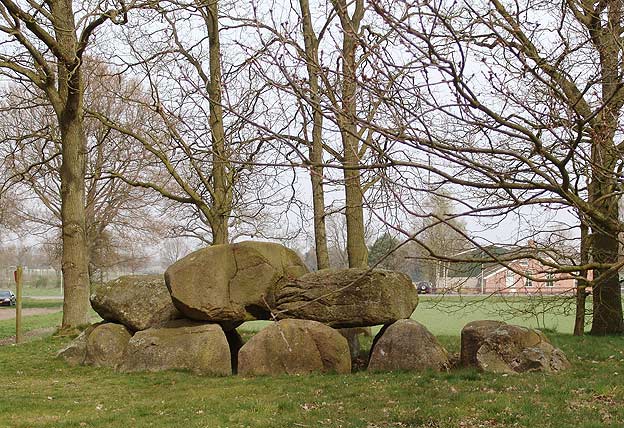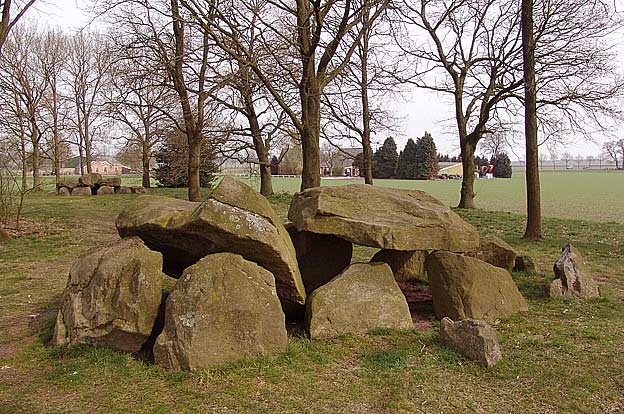
D28 and



| D28 and D29 are twins, as you can see. These small hunebeds lie close together and are of equal size. D28, on the upper picture, has 3 capstones; one is missing. D29 originaly had 3 capstones and here also one is missing. The 2 present however are very large and very flat. Possibly they are the two parts of a very big boulder that was split. But how..? Did the hunebed-builders have cleaving techniques at their disposal...? There are some archaeologists in Holland who think they did, for instance by alternately heating them by fire and cooling them with water. But that's just a speculation. |